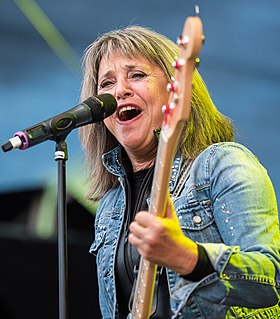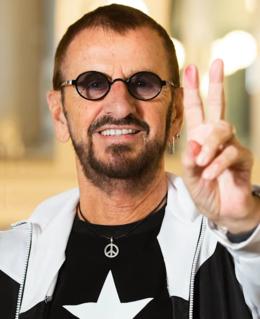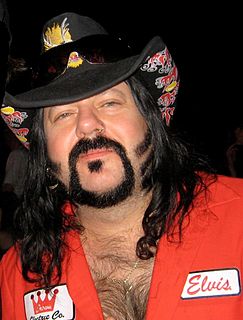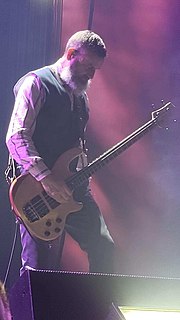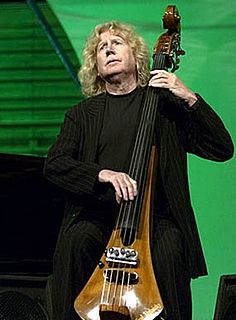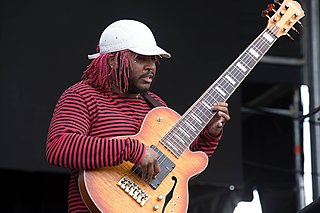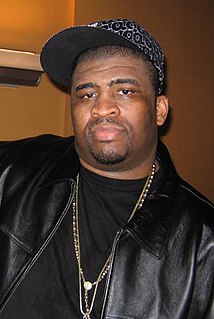A Quote by Shura
There's something about rhythm and bass sections generally, how the bass and drums interact, that's basically the soul of any song.
Related Quotes
I started playing bass in my friend's band for some reason. It was just something I did because, well, he asked me if I wanted to play bass and he played me this song - Nirvana's version of "Molly's Lips", the Vaselines song - and he said, "You can do this! This is not hard!" and it's like a two-note song. I learned that and then I thought I was a genius.
I don't ever have any bass in my monitors at all; I instead like to lock in with the guitar. I know the bass player has got to be locked in with the drummer, but to me, metal music is about the guitar and drums locking in and operating like a machine together. I played with my brother forever, and we were magically locked in together.
I don't look at my instrument as having one specific role; I was raised to go as far as you can. But Raphael Saadiq hated my bass. He told me to throw it away. And playing in Snoop's band, there was a time when my bass was more annoying to everyone than helpful. They would get on my case: 'Can you make your bass sound like more of a bass?'
Rhythms, beats, etc., are fundamentally central to my creative drive: my first instrument was the drums, nearly every band I have been involved in or at the helm of, is driven by rhythm, my band is driven entirely by rhythm, machine rhythm, and the purpose of the rock instrumentation is literally to speak the beats, to emulate the rhythms with guitars and bass, with very little articulation, and without being 'progressive'.
I can't get very excited about a musician who can do Art Tatum because I've got the Art Tatum records. I want to hear him take that and do something that hasn't been done. And there's enough of that going around that keeps the music very exciting. There's so many great young players coming out. I think we're in some kind of renaissance, especially in the rhythm section. I mean the musicians on drums and bass and guitar are really trying to figure out different ways to bring a rhythm section together.



